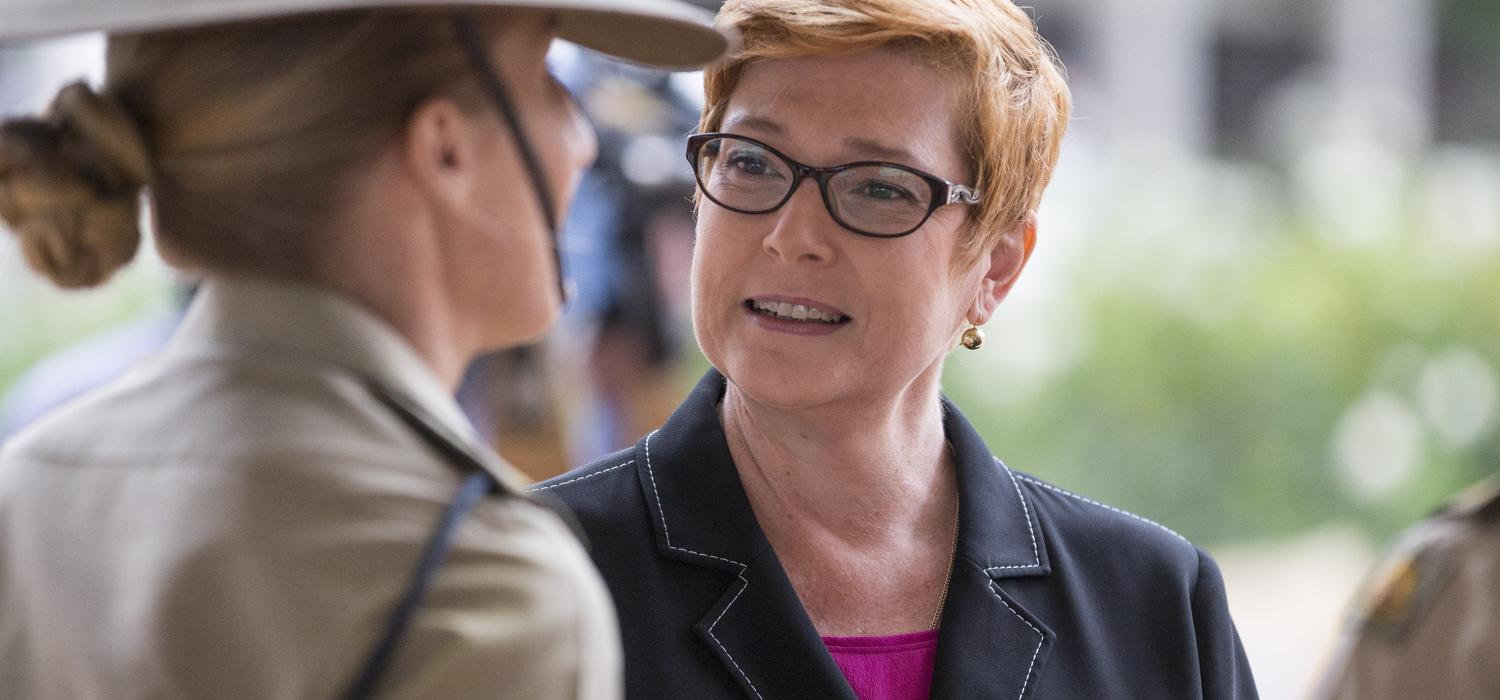By John Gooding, Digital Editor at the Lowy Institute and Associate Editor at The Interpreter.
Last Wednesday was International Women's Day. Interpreter Managing Editor Emma Connors noted the occasion with a call for for women interested in writing for The Interpreter:
We frequently have women writing for The Interpreter but it is not a 50-50 split. We're keen to tap into more of the capacity that we know is out there. Please email me at econnors@lowyinstitute.org if you have a hankering to write and think your expertise in a particular area of international policy may be a good match for The Interpeter.
On Wednesday The Interpreter featured only female contributors. Among others, Lydia Khalil wrote on why it might be time to talk with Myanmar's military in order to resolve the Rohingya crisis:
Australia needs to think more strategically and realistically about better approaches to pressure the current government to close the camps. Currently we are pressing the wrong pressure points.
Susan Hutchinson argued against stripping Islamic State extremist Khaled Sharrouf of his Australian citizenship:
Now that the Australian Government has revoked the citizenship of notorious Islamic State extremist Khaled Sharrouf, will he ever face prosecution for the crimes he has committed in Iraq and Syria?
Danielle Cave asked why 'manels' still exist:
International Women's Day, the only day you're guaranteed to sight the rare all-female panel, seems like an appropriate time to call for the end of the manel. Enough is enough. Its existence defies economic, political and social logic.
Prime Minister Malcolm Turnbull visited Indonesia this week, after President Joko Widodo's visit last month. Catriona Croft-Cusworth:
Australia’s intentions are clear. At the end of Jokowi’s visit to Sydney, Turnbull announced that he would attend the Indian Ocean Rim Association Leaders’ Summit this week in Jakarta. The move was almost certainly prompted by interest in bolstering the bilateral relationship, rather than by negotiations within the typically low-key grouping.
The two nations have committed to a completing a comprehensive economic partnership by the end of the year. Ian Satchwell:
Following the sixth negotiating round in Canberra in February, there are questions about how comprehensive and substantial the agreed IA-CEPA will be by the end of the year, and how close it will come to realising the ambitious goals of the two nations' trade ministers.
In a two-parter, Lowy Institute Board Member Mark Ryan wondered what the legendary US correspondent for the BBC Alistair Cooke would make of contemporary America, and what lessons we might draw from his reporting:
As the world struggles to adjust to the Trump phenomenon, I’m reminded of a man who might have come closer than most to making sense of it all. Englishman Alistair Cooke, it can fairly be said, understood America better than any foreigner ever has.
This week North Korean tested four ballistic missiles, which landed in the Sea of Japan. Morris Jones on how Western analysts have misinterpreted North Korea's tests:
Boffins who watch North Korea’s broad stable of ballistic missiles have sometimes fallen into a cultural trap. North Korea doesn’t run missile programs in the same way as nations with more capital, infrastructure and technology. Testing patterns that would seem essential to a Western program are sometimes condensed or removed.
Sam Roggeveen wondered how Australia could possibly protect itself against the threat of a long-range North Korean strike:
Australia could do more to invest in missile defence against the continent. But this is a hugely expensive task...trying to defend the Australian continent against North Korean missiles may simply be unviable.
In China, defence spending growth has dropped to its lowest level in years. Jingdon Yuan on what's behind the slowdown:
China’s announced defence budget for 2017, at an even slower growth rate than last year’s, is as much about the economic reality as it is about sending a signal aimed at reassuring Washington and the region.
Elliot Brennan wrote on the status of Thailand's new politics without the late King Bhumibol Adulyadej:
The late King Bhumibol Adulyadej oversaw Thailand’s impressive 20th century development, often acting as a peacemaker in its turbulent politics. He will be missed. For his son and successor, Maha Vajiralongkorn Bodindradebayavarangkun, they are big shoes to fill.
Despite some challenges, Indian-Iranian cooperation on the Chahabar port site is making substantial progress, wrote Aniseh Bassiri Tabrizi and Aaditya Dave:
Both Iran and India see Chabahar as a way to strengthen the central government in Afghanistan by providing a trade and investment corridor that would allow New Delhi and Kabul to bypass Pakistani restrictions on bilateral trade.
Australia's upcoming Foreign Policy White Paper represents an opportunity to appropriately emphasise the role of development in Australia's foreign policy, argued Jonathan Pryke:
Engaging with our region on development challenges in a constructive and long-term fashion is critical to our national interest in that it helps build a prosperous region while maintaining strong bilateral partnerships. There could be no better way of enshrining its importance than renaming DFAT to incorporate development. The Minister for International Development and the Pacific should also be promoted to Cabinet rank to make the position less of a political stepping stone.
And finally, Jim Molan wrote on a declassified dossier documenting Australia's experience in the Iraq War, written by an army official:
The report, which noted that former Democrat Senator Lyn Allison suggested that I might end up being tried as a war criminal, is not a bad summary of our participation in the Iraq War up to 2010. Its conclusions are generally solid and it is well researched and written. It is the only report of this kind that I am aware of, and it is a shame it was so redacted.
